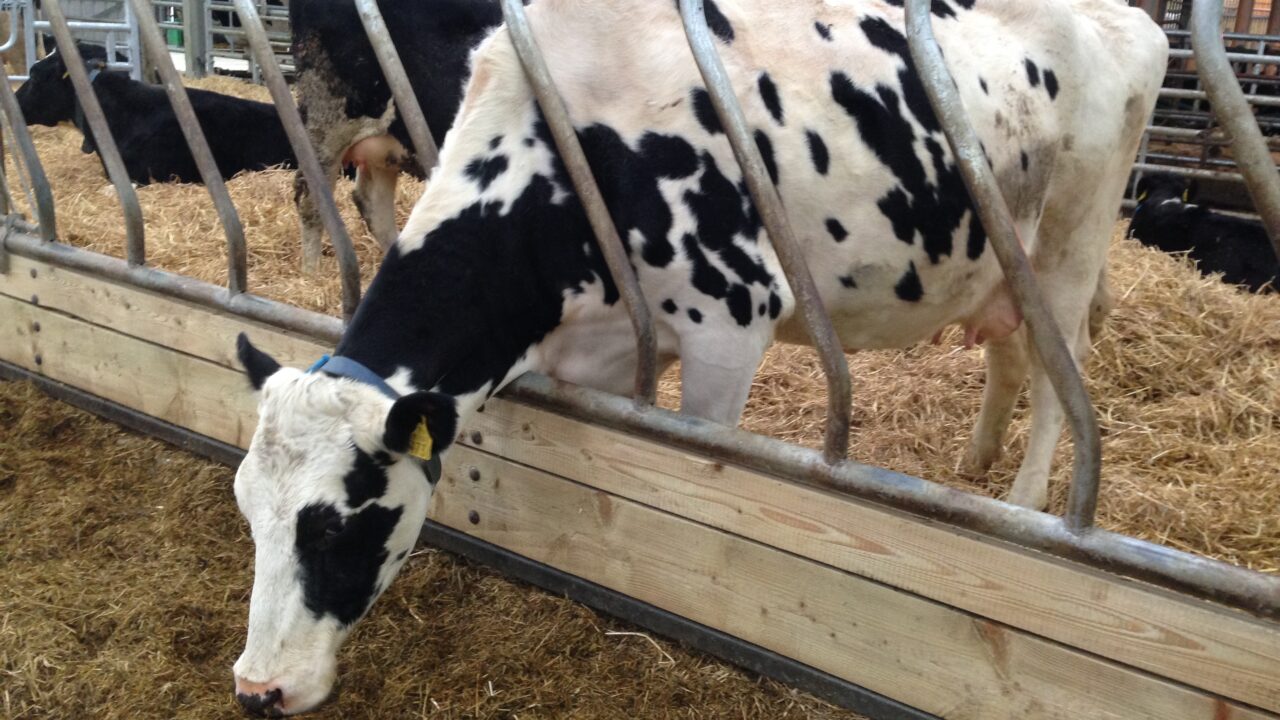It’s widely recognised that fibre is an important component in ruminant diets, both as an energy source and for correct rumen function.
But according to Dr Nicola Walker, AB Vista’s ruminant Product Development Manager, the full extent of the gains possible from improving the digestibility of that fibre are much less understood.
“Because fibre is the slowest digesting fraction within the diet, both the amount consumed and its digestibility can have a massive impact on overall feed efficiency.
“As a result, even small improvements in fibre digestion can significantly increase the amount of milk produced from all feeds, not just forage,” Dr Walker said.
Fibre in the diet
Total dietary fibre typically accounts for 45-50% of the Dry Matter (DM) in most dairy rations, yet not all of this fibre can be utilised by the cow.
And just as critically, not all of the potentially digestible fibre actually gets broken down.
“What’s often overlooked is the fact that the extent to which fibre is digested in the rumen is determined both by potential digestibility and conditions within the rumen.
When conditions are ideal, the digestibility of plant cell walls – the main source of fibre in the diet – is typically around 65%.
“But when conditions deteriorate, this digestibility can drop to as low as 35%,” she said.
Factors limiting fibre digestion
Sub-Acute Ruminal Acidosis (SARA), for example, can limit fibre digestion by reducing the activity of fibre digesting microbes and slowing the rate of digestion.
A similar effect can result when the lag time before digestion is extended, such as when excess oil in the diet slows microbial attachment and colonisation.
The impact of rumen conditions on the rate and extent of fibre digestion:
Digestibility can also be limited by higher rumen outflow rates limiting the time available for microbial digestion, whether due to the addition of sodium bicarbonate to correct rumen pH, higher water intakes in hot weather or low fibre diets that are poorly retained in the rumen.
“Many of the best value feeds used in ruminant diets – grazed grass, silages, moist feeds – supply the majority of their energy as digestible fibre, but that energy is only available if the fibre is actually digested.
“High levels of fibre digestion also improve the balance of volatile fatty acids (VFA) that forms the primary energy supply to the cow,” she said.
Formulating diets – A Top Priority
Formulating diets to optimise rumen digestion of fibre should therefore be a top priority, claims Dr Walker.
A balanced release of energy in the rumen will reduce the risk of SARA, whilst rumen conditioners and yeasts can further improve rumen function.
Keeping overall oil and fat content below 5% will help avoid coating fibre in the rumen, and so minimise the lag time before fibre digestion begins.
“Recent research has shown that even a one-hour reduction in the time it takes for microbial attachment and colonisation of fibre in the rumen can raise Total Mixed Ration (TMR) digestibility (D-value) from 63% to 67%.
The result was an increase in feed efficiency (1.43 to 1.60), milk yield (+1.3 litres/cow) and milk protein (3.58% to 3.70%).
“Achieved using a Trichoderma reesei-derived fungal extract applied as a fibre pre-treatment prior to feeding – which roughened and created pits in the surface of the fibre – it highlights just how much additional potential is available if fibre digestion can be truly optimised,” she concluded.
To find out more information about VistaPre-T, AB Vista’s liquid pre-treatment that maximises fibre and forage digestion click here or contact AB Vista’s Technical Manager, Martin McConnell on 086 8109398.




